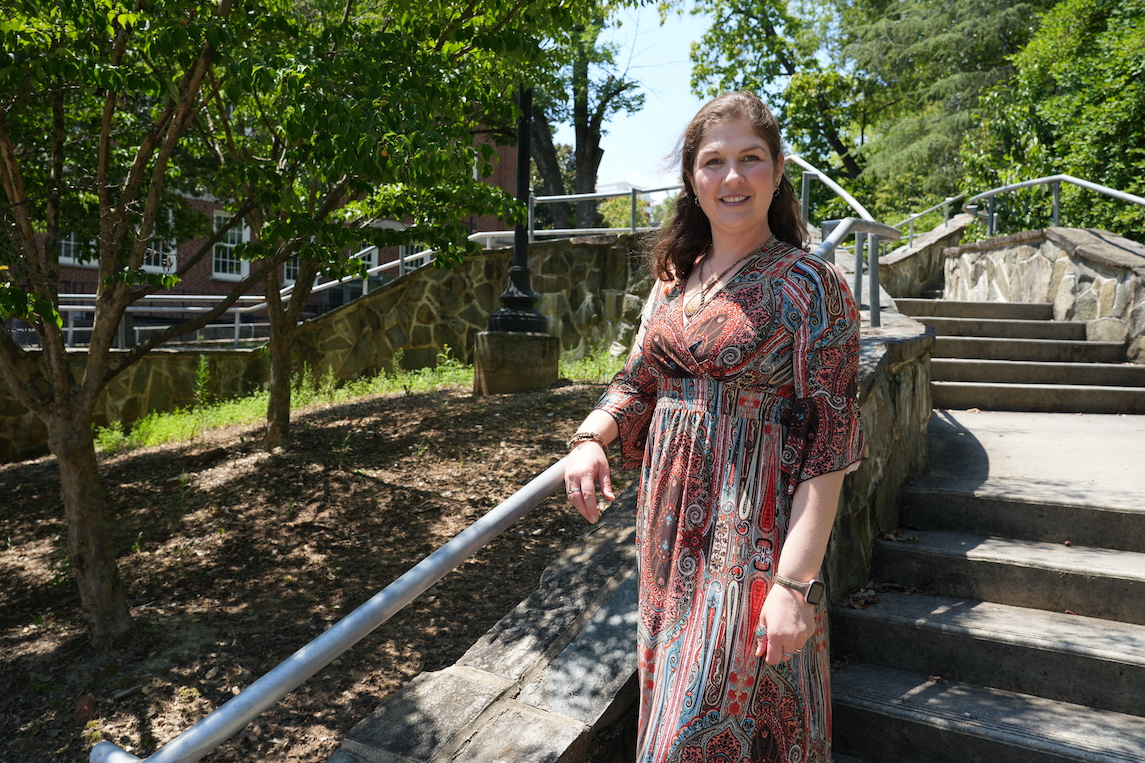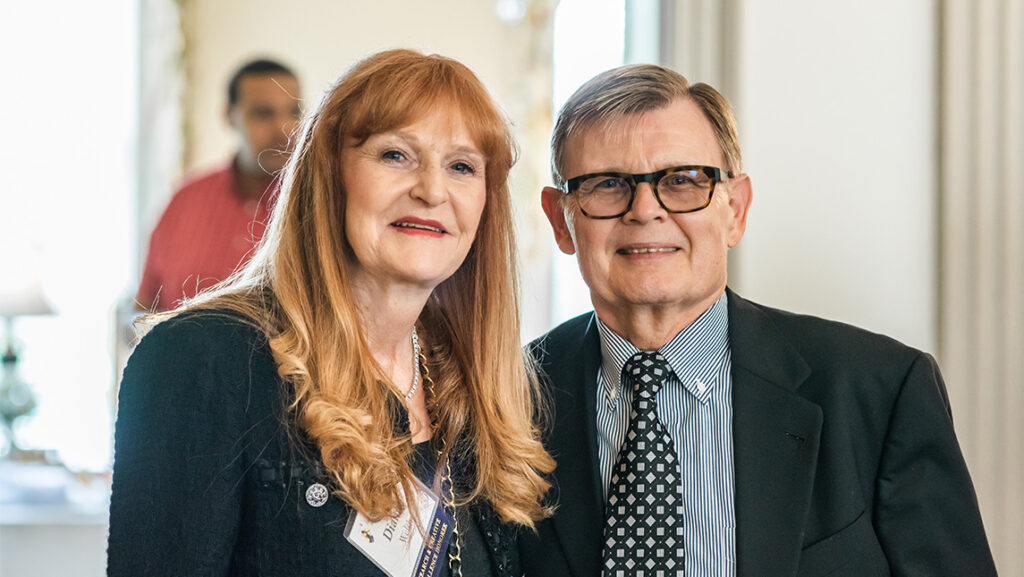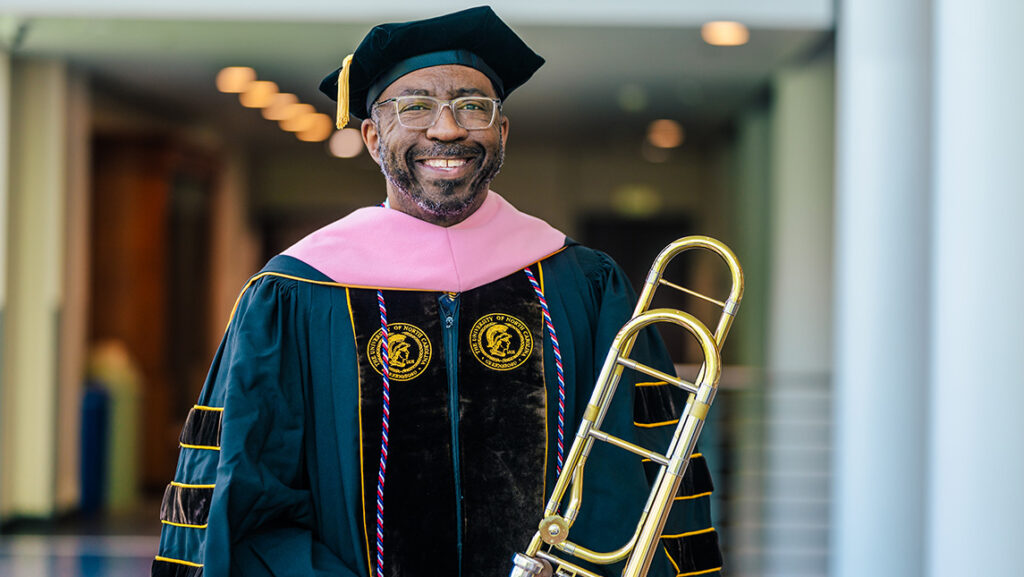Dr. Amber Vermeesch wanted to travel and see the world after graduating with a bachelor’s degree in cultural anthropology.
She chose to head west, first working as a bartender on a horse ranch in Colorado, then serving in AmeriCorps in Montana, and finally making her way to New Zealand to explore the country. All the traveling suited her free spirit, her love of the outdoors, and her interest in photography and international relations.
While in New Zealand, Vermeesch applied to nursing school and to teach English in Japan. She was accepted into both programs and, having returned to Tennessee to care for her grandparents, decided to go into nursing.
“I came back from that venture out west and was caring for them and really was like ‘Well, this makes a lot of sense.’ I know you can’t prevent a lot of things, but you can prevent more than not in many ways,” Vermeesch says. “I wanted to take this desire to help, helping my grandparents through both of their deaths, and then find a way to do it on a bigger scale.”
A Desire to Help
Vermeesch was in her 20s when she decided to become a nurse and follow in her family’s extensive history of working in health care. Since then, she has found a way to help people on a large scale, as she had hoped.
Vermeesch joined the UNC Greensboro School of Nursing this fall as an associate professor and the chair of the Department of Family and Community Nursing.
As a family nurse practitioner, she has treated patients who have limited health insurance and often don’t have access to proper health care. As a nurse scientist who’s also an avid outdoorswoman, much of her research has focused on wellness and finding ways for people to live the best they can.
Her research includes nature-based interventions, which involves individuals spending time outdoors to improve their physical and mental health.
“We have a cool term for it now, but it’s likely as you and I were growing up we were told to go outside. We know we just felt better,” Vermeesch says. “But now we have scientific, objective evidence as to why it lowers our blood pressure, as to why we have less depressive symptoms, as to why our immune systems just improve from being outside.”
The Making of a Nurse
Vermeesch, who grew up in Nashville, comes from a long line of Tennessee doctors.
Her great-grandfather worked as a physician, and Vermeesch has the Tennessee medical license that he received in 1911 framed and on display in her office in the Nursing and Instructional Building. Her grandmother earned a PhD in education, and her father worked as a physician and a professor at Vanderbilt University.
However, when Vermeesch was younger, her father advised her not to go into medicine if she wanted to have an impact on patients because of all the red tape that physicians must deal with on a regular basis.
Along with bartending, Vermeesch worked for one year with AmeriCorps, which is like a domestic Peace Corps. Through her work with the organization, she was able to go back to college, train to become a registered nurse, and then earn her master of science in nursing through Vanderbilt’s “bridge” program.
She transitioned into a new role as a family nurse practitioner.
“I was trying to find a way to get all of my interests to work together for the betterment of society, for the betterment of individuals, and nursing is the perfect fit for that because what I do as a practitioner anyways is I help folks find the best answers for themselves,” Vermeesch says. “So, I sit and listen to them.”
Naturally Boosting Your Health
Vermeesch’s research has focused in large part on ways to improve people’s wellness through nature. She has worked with NatureQuant, a technology and research company that monitors and evaluates a person’s exposure to nature and generates an area’s “NatureScore.” In March, she finished writing a chapter about reimaging wellness for the soon-to-be-released seventh edition of Primary Care.
She’s also serving as an editor for a special issue of the International Journal of Environmental Research and Public Health entitled “New Advances on Wellness Therapies Using Integrated Health Focusing on Nature.”
Always looking for an opportunity to get outdoors, Vermeesch was on a road trip to the Teton Range in Wyoming when she read about Shinrin-yoku or “forest bathing,” a practice that originated in Japan. It involves people spending quiet time observing nature and practicing deep breathing to reduce stress and naturally boost their health and wellbeing.
Forest bathing made sense as a venue for her next research focus.
“It’s becoming more and more mainstream and is greatly needed as a means of reducing stress and cultivating connections with nature and community,” Vermeesch says about her research.
Story and photography by Alex Abrams, School of Nursing

Discover how you can help others.
Find your way at the UNCG’s School of Nursing. Join an inclusive community led by a team of passionate people who engage in innovative practices to produce extraordinary outcomes.



